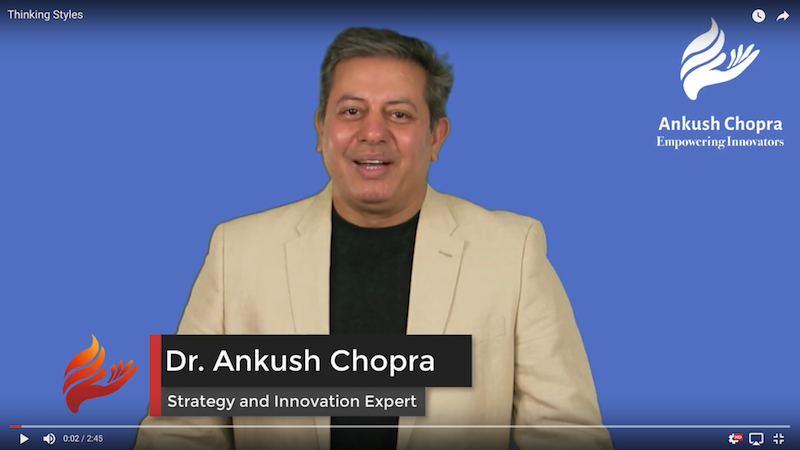Do you know that your native culture and place of upbringing defines your thinking style? Did you know that you are wired to see some aspects of a situation whereas someone else may be wired to see another aspect of that same situation? This means, you will derive a different meaning in the same situation than someone else will.
Research in cognitive science has shown evidence to prove that there are two different thinking styles in the world – Analytic and Holistic. Do you know what is your thinking style? The above video gives you more details.
The podcast referred to in the video is http://ankushchopra.com/thinking-styles-how-to-leverage-diversity-to-build-better-organizations-podcast-s2e5/
You can listen to the podcast at the end of this blog post.
If you would rather read than watch the video, the transcript of the video is as follows:
Transcript
Hi, I am Ankush Chopra
Did you know that people differ in the way they think and process information? And this difference is not because of their education, training, or knowledge but because of their fundamental thinking style. Research shows that you can have one of the two thinking styles – analytic or holistic. Do you know what is you thinking style? Lets find out
Four Men and an Elephant
Once upon a time there were four blind men going somewhere. They came across an elephant. One of them touched elephant’s leg and said, an elephant is like a tree trunk. The second one touched the tail and said, you are wrong, an elephant is actually like a rope. The third one touched the elephant’s trunk and said, no, an elephant is like a large snake. And the fourth one touched the tusk and said no you are all wrong, an elephant is like a slippery stone.
The reason why they perceived the elephant differently is because they processed information about the elephant differently. They paid attention to different parts of the elephant and made sense by using the information they received.
Are You Prone to this Mistake?
You may think that since you can see the whole elephant you won’t make this mistake. But what if I told you that you are wired to pay attention to a specific aspect of a situation. And someone with a different thinking style will pay attention to a different aspect of that situation.
Research in Cognitive Science
Research in cognitive sciences has shown holistic thinkers focus more on the context or the field rather than a focal object whereas analytic thinkers focus more on the focal object rather than the context.
Cultures and Cognitive Styles
It also shows that people from eastern cultures are more likely to be holistic thinkers whereas people from the western cultures are more likely to be analytic thinkers.
Because of the way they focus on two different aspects, they believe in different cause effect relationships, learn in different ways, and make predictions in different ways.
How This Can Help You?
Your understanding of your natural thinking style can make you a more self aware decision makers and a much better organizational leader. I explored this research on thinking styles and its implications in my latest podcast linked below. Hope to see you there.
Listen To the Podcast Here
You can listen to the podcast referred to in the video right here.





Please note: I reserve the right to delete comments that are offensive, or off-topic. If in doubt, read my Comments Policy.